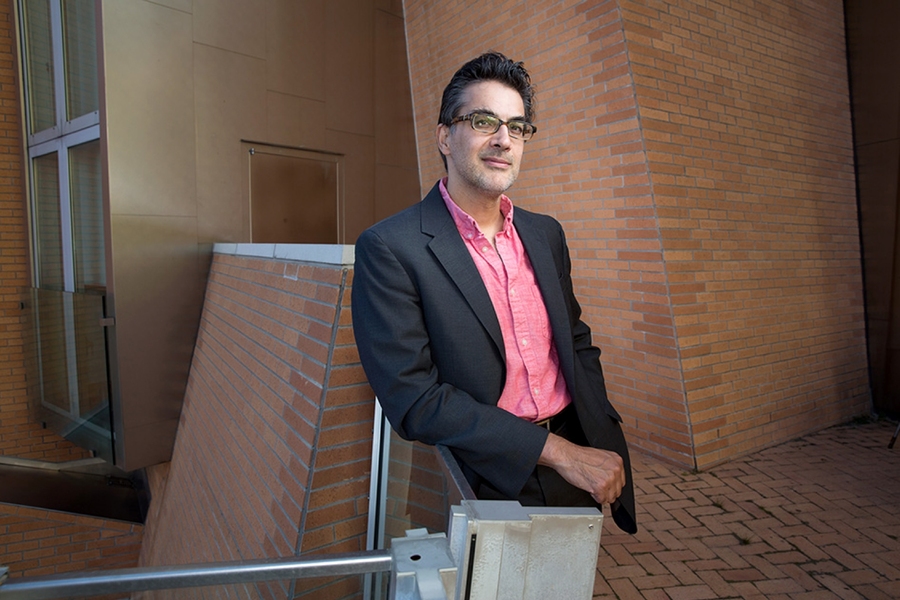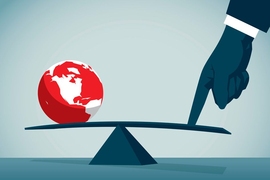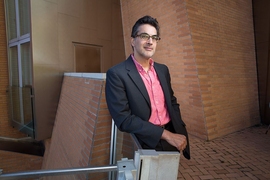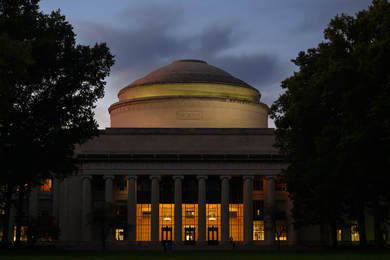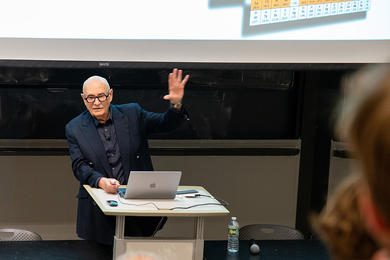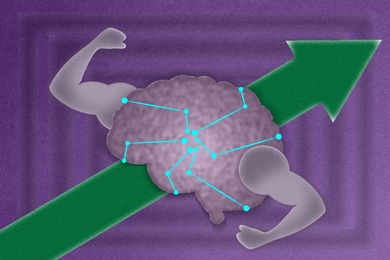Science and technology are essential tools for innovation, and to reap their full potential, we also need to articulate and solve the many aspects of today’s global issues that are rooted in the political, cultural, and economic realities of the human world. With that mission in mind, MIT's School of Humanities, Arts, and Social Sciences has launched "The Human Factor" — an ongoing series of stories and interviews that highlight research on the human dimensions of global challenges. As the editors of the journal Nature have said, framing such questions effectively — incorporating all factors that influence the issue — is a key to generating successful solutions. Contributors to this series also share ideas for advancing the multidisciplinary collaborations needed to solve the major global issues.
Kieran Setiya is a professor of philosophy within the MIT School of Humanities, Arts, and Social Sciences (SHASS) who explores questions of ethics (including climate change ethics), epistemology, and the philosophy of mind. He is the author of two books: "Reasons without Rationalism" and "Knowing Right From Wrong." SHASS Communications asked him to share his thoughts on how philosophy can help people tackle the problem of climate change.
Q: How can an understanding of philosophy help people make better decisions about how to handle major global issues such as climate change?
A: Whether they acknowledge it or not, almost anyone engaged with global issues of human well-being, the distribution of resources, or the future of society is doing moral philosophy. The most technocratic assessment of costs and benefits makes assumptions about what counts as cost and benefit: about the value of human life and the demands of justice. As John Maynard Keynes wrote 80 years ago, those “who believe themselves to be quite exempt from any intellectual influence are usually the slave of some defunct economist” — or philosopher.
Making our ethics more explicit, being self-conscious about our principles and premises, improves our moral thinking. This is particularly true when the questions are ones of public policy, when they operate at scales that defy intuitive judgement, and when they threaten our complacent desire to maintain the status quo.
The problem of climate change is challenging in all these ways. It is unique, or unusual, in that it leads rapidly beyond the usual terrain of political theory to questions more abstract and existential. Why should we care about the survival of humanity? The answer makes a difference to our assessment of catastrophic risks. How should we think about decisions that affect the identity of future individuals? If we do not act on climate change, people born 50 or 100 years from now will lead impoverished lives. But they would have been no better off if we had acted otherwise: in that alternative history, they would not exist.
Along with problems of identity, there are problems of time itself: Economists often discount not only wealth but human welfare as they project into the future. Because it compounds year by year, the discount rate swamps other factors in the economic assessment of climate change. What forms of discounting are ethically defensible? Philosophers have been thinking about these questions for decades. Their ideas are relevant now.
Q: What moral questions do we need to address as a society if we are to succeed in working together to meet communal goals such as the emissions reduction targets set by the 2015 Paris Agreement?
A: We know that climate change will cause tremendous harm and that the extent of this harm depends collectively on us. Many would agree that climate change is a moral issue and that we are obligated to act. But there is little clarity on the basis of our obligations or on what exactly they are.
Climate change will disproportionately affect the developing world, hitting India and Africa especially hard. In narrowly economic terms, a recent study saw the likely cost of 2 degrees of warming as 5 percent of GDP in India, 4 percent in Africa, but only 0.5 percent in the United States and less in China. These facts bear on questions of distributive justice, even apart from the causes of climate change.
When we turn to history, we find issues of corrective justice or restitution. More than half of all emissions have been caused by the United States and Europe, as they reaped the benefits of industrialization. How far can developed nations be held accountable for past emissions? Do our obligations now depend on the extent of our contribution to the problem?
And then there is the risk of global climate catastrophe. This is what lies behind the 2 degree target embraced by the UN's Intergovernmental Panel on Climate Change and others. Beyond 2 degrees, there is a danger of feedback in the climate system that would increase average temperatures by 5 or 6 degrees, threatening human extinction.
Is the obligation to act on climate change a matter of distributive justice, restitution, or insurance against catastrophe? The answers are not exclusive. Which should be our focus?
These questions bridge theory and practice, moral principle and political strategy. We need to address them in interpreting the “common but differentiated responsibilities” of the Paris Agreement. We need to address them in finding ways to motivate action in the present whose impact will only be felt by future generations. And we need to address them when we ask how far to compromise ideals of justice in the name of necessity.
How complicit should we be with energy companies whose business model rests on catastrophic levels of fossil fuel consumption? Or with corporations that sponsor climate denial? These are questions for institutions like MIT. At the same time, we face the challenge, as individuals, of maintaining hope for the future or continuing to act without it.
Q: How do you think the courses you teach, such as 24.02 (Moral Problems and the Good Life), prepare MIT students to make valuable contributions to a better world — whether their field is engineering, science, or something else?
A: Teaching ethics is a risky business. If the end is to make people better, it is open to question whether moral philosophy is the most effective means. Some philosophers fear that it is counter-productive. As Annette Baier once complained, the standard introduction to ethics “acquaints the student with a variety of theories, and shows the difference in the guidance they give. We, in effect, give courses in comparative moral theory, and like courses in comparative religion, their usual effect on the student is loss of faith in any of the alternatives presented.”
One of my aims in 24.02 is to present moral philosophy as something more than a stalemate of conflicting views. Moral argument is not a zero-sum game: It generates insight and illumination. At least when they go well, courses like mine prepare students to make a positive difference in the world in part by convincing them that it is worth thinking about ethical questions, that they can make progress in finding answers, and that doing so changes lives.
In the 2016 Senior Survey, more than 20 percent of MIT students said that working for social and political change is not important to them at all. I don’t know what explains this statistic, but I make a point of exposing students to some of our most urgent moral challenges, including global climate change, and of confronting doubts about the efficacy of individual action.
At the same time, I want students to think about ethics beyond the limits of problem-solving, to explore not just the demands of morality but ideals of human flourishing. What does it take to live a good and meaningful life? The value of philosophy is partly instrumental, a tool for innovation, creativity, and civic engagement. But it calls us to reflect on what matters in itself, not as a means to an end or the answer to a need we would be better off without.
When we engineer prosperity and progress, when we struggle against injustice, what sort of lives are we fighting for? Lives in which philosophy has an enduring place. As Jonathan Wolff writes, with useful hyperbole: “Medicine helps us live longer; scientific advances save us time; but the arts and humanities make it worth living longer, with time on our hands.”

